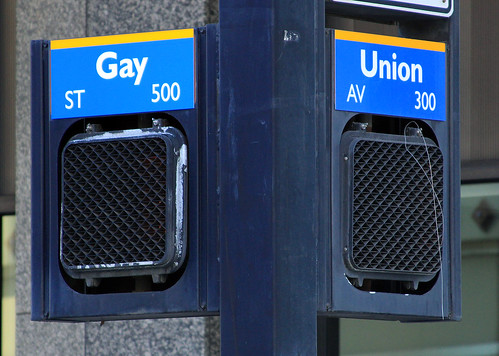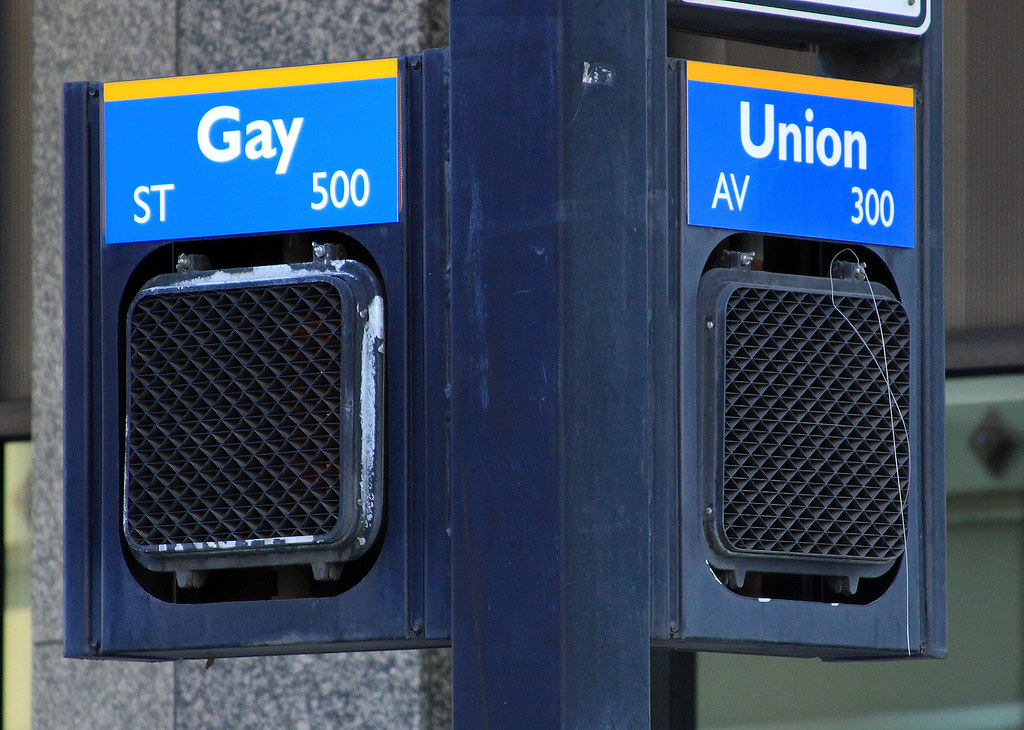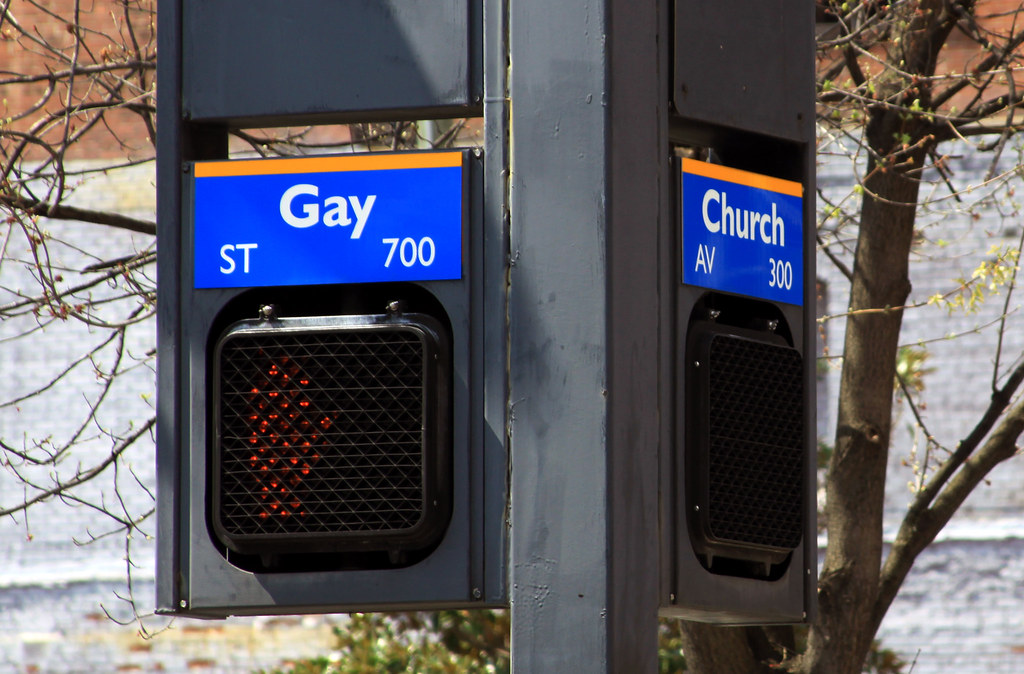Okay, so it was eventually going to happen that I would have to tackle this issue. When I go to church every Sunday in my evangelical Presbyterian church and go to LGBTA meetings every Monday, the whiplash was going to catch up to me eventually. The issue I'm really struggling with right now is what to do as a Christian, and as a social justice freak who loves the LGBT community, with the arguments swirling around about the topic of gay marriage.
So, four years ago I had no problem per se with limiting marriage as long as it was handled on the state level and it was done constitutionally. I
was a Christian, after all; at the time, I had a tough time delineating between following Christ and Christian culture, which meant that I didn't question what I had been taught about the morality of same-sex desire. So when my home state in Appalachia put a marriage definition referendum on the ballot, the (Baptist) church I went to at the time pushed it pretty hard. I was pretty ambivalent, honestly. It seemed fishy, but who was I to argue?
When the time came to actually vote, I stared at that question on the ballot for a good five minutes, held my breath, and clicked the "Yes" button. Then I spent the next six months feeling like an absolute jerk for doing it. I just didn't think I could challenge the rest of the church on that issue, and I let the pressure push me into voting in a direction I didn't really have any conviction in. I really regret that now. I should have realized that, if my church was pushing me to vote against my conviction, that maybe that's because something was wrong with the whole situation.
Things have changed a
lot in the last four years. For one, I feel like I can stand up against the pressure from my church to start looking at the issue more critically. My problem with limiting marriage now is that the only legitimate arguments I can come up with that hold any water are completely Biblical. I can make the argument work for within the body of Christ if I actually want to, but I can't find a clear, logical argument for extending that outside into the larger social sphere. If I can't come up with a clear, obvious reason to apply a law or rule to those outside of the Christian body, I become very reticent to force it upon a larger society who doesn't share my religious conviction. I'm not a fan of Sabbath laws or liquor sales restrictions for that same reason.
Next, the
Manhattan Declaration keeps telling me about all the vast social ills that will invariably follow from allowing same-sex couples to marry, and I just don't buy it. The argumentation just isn't there to support it. So far, no single country has seen a rise in any of the "social ills" they're afraid of because they were already there; and if South Africa suddenly collapses in the next decade or so, it's certainly
not going to be because they let gay people get married. It will be from a much larger complex of social problems which the government is trying to address but seems unable to resolve.
As far as I can tell, the only thing wider society will lose with the adoption of gay marriage is an easy, clean definition they've always made between what we have deemed licit and illicit sex. All of a sudden, we can't just push people to get married and make their sexual situation "okay" because now marriage can make sex between couples that we don't like "okay" as well. Gay marriage, if anything, threatens the moral high ground of sexual conservatives by creating a category crisis. First, we can no longer deny legal recognition of couples we don't really approve of to keep the "us" separate from "them." That's the same reason miscegenation laws were so popular in the US for a long time too, you know, and those have been completely (and rightly) dismantled. Secondly, it blurs the social distinction between the two. When gays and lesbians suddenly become as domestic, sedentary, and monogamous as the rest of us... how much harder is it to argue that they're immoral and disgusting? (And that's
exactly the point, conservatives. They're not.)

So, in short, this erstwhile conservative evangelical is having an extremely hard time justifying definition of marriage statutes in the United States, and right now, few people in the Christian community are helping me out. I just keep hearing the same old flawed arguments about the collapse of society and the slippery slope. And, strangely, I've discovered that I'm not the only evangelical to feel this way. I keep running into scores of other people with the same problems with the Christian right's approach to gay marriage and civil unions, but right now we can't find anybody from our own community who can allay our concerns and convince us that defining marriage to exclude same-sex couples is
right. So my only recourse at this point is to conclude otherwise.
So, here are my five questions for the Manhattan Declaration crowd that need answered if you're going to get me to reconsider my opposition to definition-of-marriage statues and preference for full marriage benefits for all. If you think you can actually answer these in a thoughtful, reasoned way with good logic and evidence, I would be
very interested to hear what you have to say.
And if you're on the other side of this issue and can provide good arguments
for gay marriage from within a Biblical framework, I would be
very interested to hear from you, too.
All right, so my five problems are as follows:








